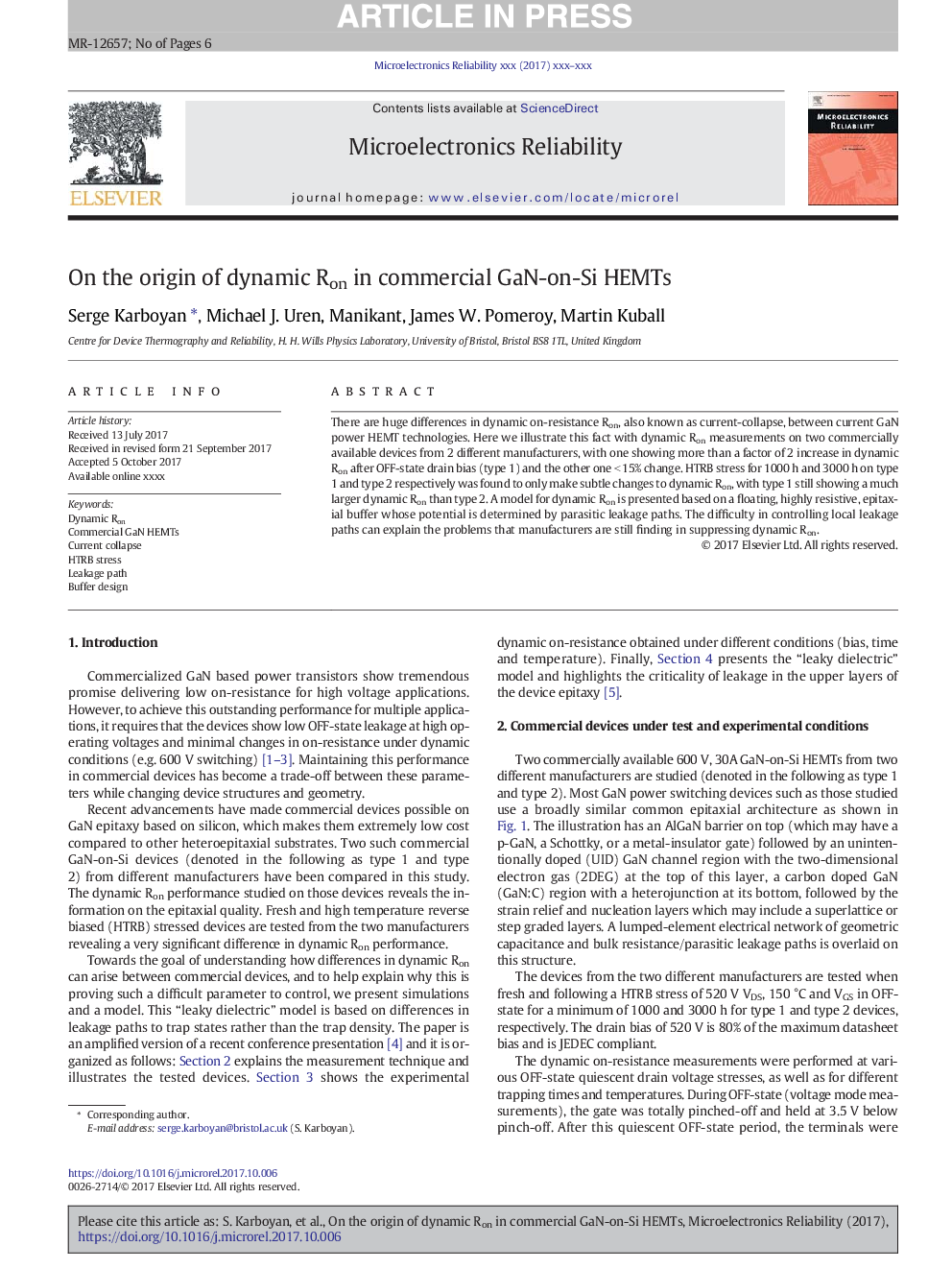| Article ID | Journal | Published Year | Pages | File Type |
|---|---|---|---|---|
| 6945889 | Microelectronics Reliability | 2018 | 6 Pages |
Abstract
There are huge differences in dynamic on-resistance Ron, also known as current-collapse, between current GaN power HEMT technologies. Here we illustrate this fact with dynamic Ron measurements on two commercially available devices from 2 different manufacturers, with one showing more than a factor of 2 increase in dynamic Ron after OFF-state drain bias (type 1) and the other one <Â 15% change. HTRB stress for 1000Â h and 3000Â h on type 1 and type 2 respectively was found to only make subtle changes to dynamic Ron, with type 1 still showing a much larger dynamic Ron than type 2. A model for dynamic Ron is presented based on a floating, highly resistive, epitaxial buffer whose potential is determined by parasitic leakage paths. The difficulty in controlling local leakage paths can explain the problems that manufacturers are still finding in suppressing dynamic Ron.
Keywords
Related Topics
Physical Sciences and Engineering
Computer Science
Hardware and Architecture
Authors
Serge Karboyan, Michael J. Uren, Manikant Manikant, James W. Pomeroy, Martin Kuball,
